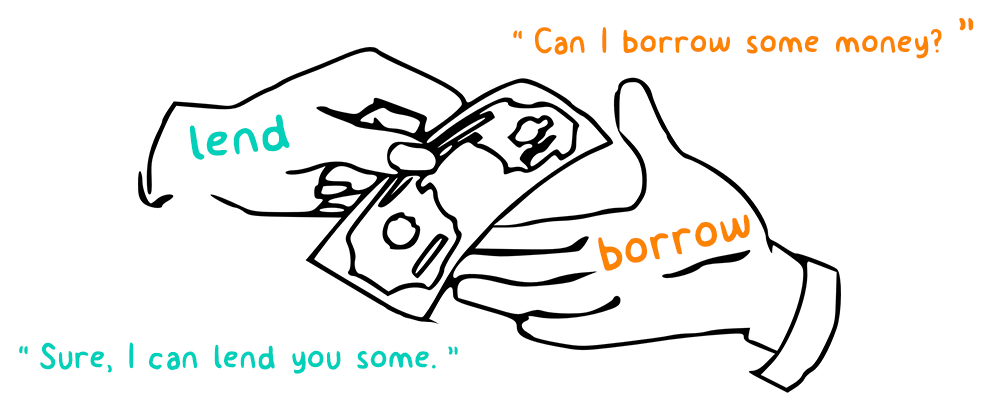
英語で「借りる」ことを表現する時は、シチュエーションにより動詞を使い分けます。また反対の意味を持つ「貸す」ことを表現するには?ブログを参考にして使い分けて見ましょう。
Non-native speakers often confuse the words rent and borrow when speaking English. This is understandable because on the surface, these words seem very similar, but actually, they are quite different.
The main difference between rent and borrow is whether or not money is paid for the use of something. When you rent something, you pay money for it. When you borrow something, you use it for free and simply return it later.
to rent [verb]—to pay to use something for a short time or on a repeating basis.
Let’s rent a car for our trip, rather than take the train.
I would love to rent that apartment, but it’s too expensive.
to borrow [verb]—to use something that belongs to someone else, then return it.
Can I borrow a pen, please?
I forgot my wallet—can I borrow $20?
The word "rent" is also used in both directions: I'm renting my apartment from a landlord, and the landlord is renting the apartment to me.
Using "lend"
In English, always use lend/borrow (never rent) when talking about getting money. This is the case even if you are paying interest, for instance, on a bank loan. If you buy an apartment, you borrow money for it. Likewise, the bank lends money.
Confusing the words borrow and lend is also a problem. The confusion stems from the fact that both words describe the same action. However, "borrow" and "lend" describe the opposite directions of that transaction. The person who gives the thing to someone else lends it, while the person who takes the thing borrows it. Picture it like this:

Another way to say the same thing is, "Can you lend me some money?" "Sure, you can borrow it." The difference is just the change in the subject of the sentence:
A: "Can I borrow it?" = "Can you lend it to me?"
B: "Sure, I can lend it to you." = "Sure, you can borrow it."
Simply be careful of the subject of the sentence. If you are unsure which to use, you can refer back to the picture above.
If you do make a mistake with rent, borrow or lend, it will fundamentally change the meaning of the sentence. This is known as a fatal error. So, as you speak, be careful about these three verbs. If you need help, your teacher can always lend a hand.
—
stems from the fact that [set phrase]—can be understood as "is because of..." or "comes from the fact that..." If you'd like to learn more transition phrases to describe cause, take a look at Lesson 4 of our Transitions Course.
fatal error [noun]—a mistake that kills the meaning of your sentence and make it difficult or impossible to understand.
lend a hand [phrasal verb]—help.